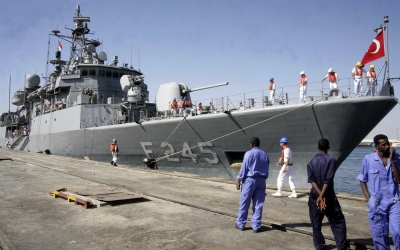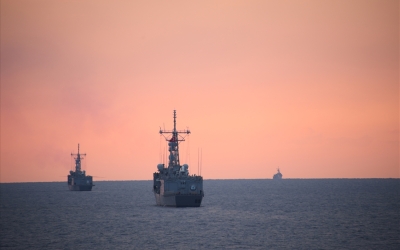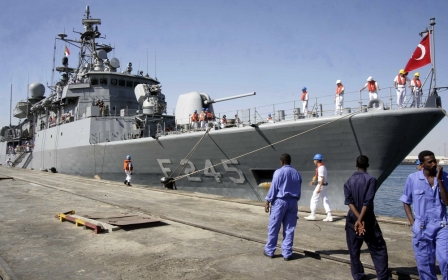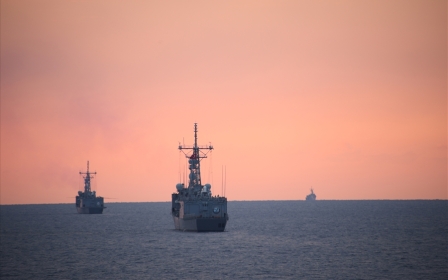Turkey warned by EU's Mogherini against oil and gas drilling off Cyprus
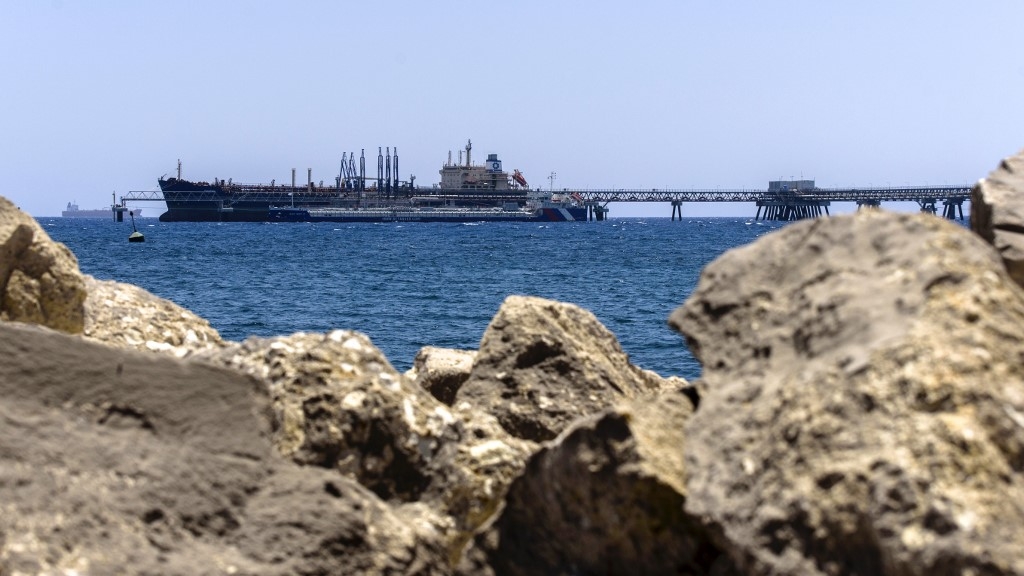
EU diplomatic chief Federica Mogherini on Saturday urged Turkey to reconsider plans to start exploratory drilling for oil and gas off Cyprus, already condemned as illegal by the European Union.
"We express grave concern over Turkey's announced intention to carry out drilling activities within the exclusive economic zone of Cyprus," Mogherini said in a statement, reported by AFP.
"In March 2018, the European Council strongly condemned Turkey's continued illegal actions in the Eastern Mediterranean," she added. "In this context, we urgently call on Turkey to show restraint," she added, warning that the EU would "respond appropriately to any illegal action that violated Cyprus's rights".
US officials are also increasingly expressing support for cooperation among Israel, Cyprus and Greece in developing the reserves as a measure to counter both growing Russian influence in the eastern Mediterranean and Turkish hostility towards gas development in Cyprus's territorial waters, where both have claims to energy resources, Deutsche Welle reported on Friday.
In a show of support, US Secretary of State Mike Pompeo met with Israeli, Greek and Cypriot leaders in March to discuss regional energy development and joint security initiatives.
On Friday, Turkey sent out a message on NAVTEX, the international maritime navigational telex system, announcing its vessels would be carrying out drilling operations in the Mediterranean until September.
According to reports in Cypriot media, the operation will encroach on Cyprus's exclusive economic zone.
Turkey's foreign ministry rejected Mogherini's comments and said its drilling was based on "legitimate rights".
In a statement, it accused the government of Cyprus of "irresponsibly jeopardising the security and stability of the Eastern Mediterranean region, by disregarding the inalienable rights of the Turkish Cypriots", which it described as "co-owners" of the island's natural resources.
Cyprus on Saturday "strongly condemned" Turkey's move.
"This provocative action by Turkey constitutes a flagrant violation of the sovereign rights of the Republic of Cyprus according to International and European Union Law," a Cyprus Foreign Ministry statement said.
The ministry said the bid shows Turkey's "real intentions" of undermining efforts to restart talks aimed at reunifying the ethnically divided country, the Associated Press reported.
It added that it had "taken all necessary measures to address the situation".
The government of the Republic of Cyprus only controls two-thirds of the Mediterranean island, the northern third of which is controlled by a Turkish-backed breakaway administration.
Gas was first discovered in the Eastern Mediterranean in the 2000s, setting off hopes among many observers that natural resources could be the key to unlocking political tensions rife in the area.
According to the UN Law of the Sea, coastal states have a right to 320km of maritime territory from their coast or a baseline drawn off their coast.
Still, because of the concave shape of the eastern Mediterranean, there is overlap between the areas that each country can claim, requiring negotiation and compromise – and opportunity, say some, for leverage in ongoing conflicts. In the case of Turkey, Greece and Cyprus, the gas has only exacerbated existing tensions.
Turkey first announced in February that it would be drilling for oil and gas off Cyprus.
The discovery of gas reserves in the eastern Mediterranean has prompted claims by the internationally recognised Greek Cypriot government and Ankara.
European Union member Cyprus has been pressing to develop offshore gas deposits and has signed deals with energy giants Eni, Total and ExxonMobil that have seen them carry out exploratory drilling.
Ankara claims that such exploration deprives the Turkish Cypriot minority of benefiting from the natural resources that surround the island.
In February 2018, a drill ship for Italy's Eni abandoned an attempt to search for gas off Cyprus after it was blocked by Turkish warships.
Turkey has had thousands of troops stationed in the northern third of the island since invading in 1974 in response to a Greek military junta-sponsored coup aimed at uniting Cyprus with Greece.
The northern part of the island was declared the Turkish Republic of Northern Cyprus (TRNC), which is only recognised by Ankara. UN-sponsored efforts to reunify the island have failed.
Egypt, which last year signed a gas deal with Cyprus, said on Saturday it was following the situation "with interest and concern".
In a statement, it warned of "the repercussions of any unilateral measures on the security and stability of the Eastern Mediterranean" and urged states in the region to abide by international law.
Egypt and Cyprus agreed in September to build a pipeline to pump Cypriot gas hundreds of kilometres to Egypt for processing and export to Europe.
Middle East Eye propose une couverture et une analyse indépendantes et incomparables du Moyen-Orient, de l’Afrique du Nord et d’autres régions du monde. Pour en savoir plus sur la reprise de ce contenu et les frais qui s’appliquent, veuillez remplir ce formulaire [en anglais]. Pour en savoir plus sur MEE, cliquez ici [en anglais].


